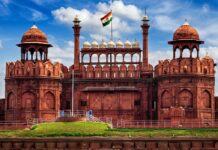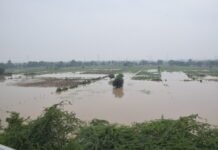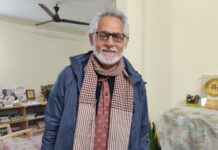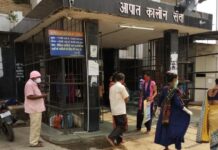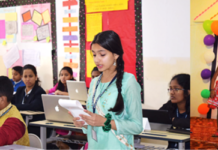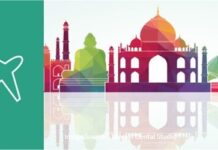[vc_row][vc_column][vc_column_text]
Over four-and-a-half years ago on a visit to Srinagar when Chief Minister Mehbooba Mufti was running the government in coalition with the BJP, I said to a student audience at Kashmir University’s media studies department that the then coalition was an “unholy alliance”. However, the alliance lasted quite a while but the logic of that nexus exploded with a vengeance after August 5, 2019 when Mehbooba’s People’s Democratic Party (PDP) faced its worst disenchantment with its former ally.
Mehbooba was put in “quarantine” for the longest period compared with other Kashmiri leaders, except Mirwaiz Umar Farooq still house-bound, who have resolutely chosen to oppose the abrogation of Article370 and 35A of India’s Constitution and converting the erstwhile state of Jammu and Kashmir into two Union Territories of J&K and Ladakh.
Other Kashmiri leaders like former Chief Ministers Farooq Abdullahand Omar Abdullah were also quarantined for various lengths of time but Mehbooba’s forced isolation was one of the longest. Gradually they have all been allowed to speak their minds in select newspapers and television channels which dare to open their portals for frank debates on Kashmir. In fact most of the country’s media outlets have chosen to side step or ignore the issue. But the issue remains. It has not gone away.
Luckily a side window has just opened with the recent India-Pakistan declaration to adhere to the restoration of ceasefire along the Line of Control which has witnessed a marked deterioration over the last six years. Thanks to back channel talks and negotiations at the Directors-General of Military Operations (DGMO) level of the two sides, which seem to bear the stamp of approval of the two Prime Ministers, there is a chink of hope for sustained better relations. Though Pakistan Prime Minister Imran Khan has said that the onus of progress rested with India, in fact it rested equally with Pakistan.
Another important event that cleared the air in Kashmir was the Supreme Court judgment dismissing sedition charge against Farooq Abdullah over his alleged statement seeking China’s help to resolve the Kashmir issue. The bench of Justices S K Kaul and Hemant Gupta observed that Abdullah had never said anything about involving China as alleged by petitioners seeking “publicity” to get their name in the press. The petitioners had cited a statement by BJP spokesperson Sambit Petra backing their claim.
The court not only rejected the petitioner’s claim but also imposed costs of Rs 50,000 on petitioners Rajan Sharma and Neh Srivastava The issue today is more complicated than merely that of sedition allegations and LOC violations. It has the humongous twist of the abrogation of Article 370 and 35A since August 5, 2019. It may be an internal matter of India but it remains unresolved and awaits hearings before the Supreme Court. It is a matter of the survival of Jammu and Kashmir as a Muslim majority state in a Hindu majority India, the foundational basis of India as a secular country. A country is judged by how it respects and treats its minorities and ensures their status as equal citizens. The recent District Development Council elections have not endorsed the abrogation of Article 370. Nor has the recent visit of some foreign envoys to J&K has changed anything.
This unsettled issue has not gone away; it remains the burning issue in J&K and not forgotten by the rest of India. In an interview in the Indian Express in January this year, Omar Abdullah, when asked if he felt despair at the way things have been going in Kashmir, replied in no uncertain terms that rather than despair, he felt deep disappointment and anger but still pinned hopes on the Supreme Court whenever it takes up the case.
Mehbooba Mufti, in an interview in the Hindustan Times a few days later, point blank told interviewer Harinder Baveja: “August 5 was a black day in the history of our country. It destroyed the trust that people of Jammu & Kashmir had placed while choosing to be a part of this country. People like me who believed in the Constitution of this country too felt cheated. It was disturbing, and quite humiliating to see our special status robbed”.A special status that had been iterated and reiterated umpteen times over more than 70 years until 5 August 2019.
The words of former Prime Minister Atal Bihari Vajpayee, who in 2003 had said that all issues could be resolved with the forward movement guided by the "three principles of Insaniyat (Humanism), Jamhooriyat (Democracy) and Kashmiriyat and that sky was the limit for autonomy for Kashmir have not been erased from Kashmir’s memory – haunting words on Kashmir’s recent past after which so much water has flown down the Jhelum. Vajpayee also stressed the importance of friendly relations between India and Pakistan. Only about a week ago Farooq Abdullah reiterated Vajpayee’s message: “I remember Vajpayee’s remark that friends can be changed but not neighbours”. Mehbooba Mufti too has voiced that message time and again. Asked if she still saw herself as an Indian or only as a Kashmiri, Mehbooba said her politics had revolved round her father Mufti Saeed’s ideology and “I am sure he would have never ever given up on the idea of India”. He believed that the J & K issue had to be resolved without compromising on the sovereignty of the country. “It has to become a bridge of friendship rather a battlefield between India and Pakistan”.
The Idea of India and “never ever” giving up on it was her father’s belief, as also her own belief as her politics has revolved around “my father’s ideology”. The Idea of India and how to protect it is the heart of the current struggle for the restoration of J&K’s status.
This is also the heart of what author and MP Shashi Tharoor calls as the “Battle of Belonging” – the title of his recent book – for our minorities. “It is the litmus test of whether we are an India for all Indians equally or an India where some are more equal than others,” as former minister and diplomat Mani Shankar Aiyar in his review of Tharoor’s book puts it – Indian nationalism revels in embracing, indeed celebrating and
guaranteeing its own diversity.
Indeed it is that concern for minorities which defines a nation where all are equal and none deprived of equality under a brute majoritarian ideology. That indeed is the crux of the issue in Kashmir. The assault on Kashmir’s identity launched on 5 August 2019 by the Central government’s abrogation of Article 370 stands challenged and awaits battle in the Supreme Court. All eyes are on that court battle which is awaited by one and all.
[/vc_column_text][/vc_column][/vc_row]
Disclaimer: We do undertake rigorous checks on content provided by contributors before publishing the same. If you come across some factual errors, kindly bring this into our notice and we shall review your objection and claim as per our policy and display correction credits and corrections on the article itself.
The opinion expressed in the article is of the writer. Writer is a freelance journalist/journalist based in Delhi

